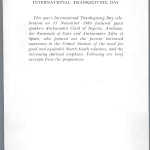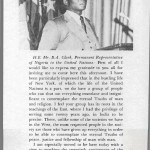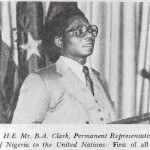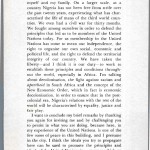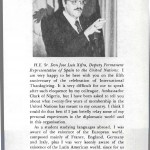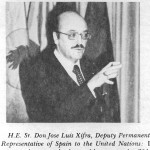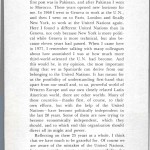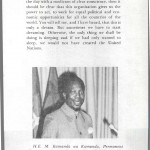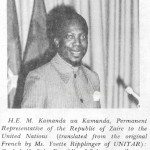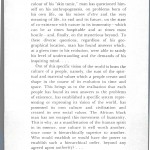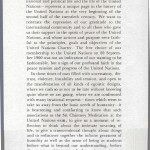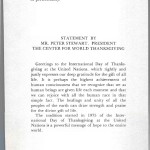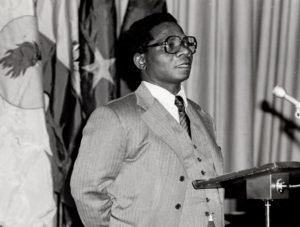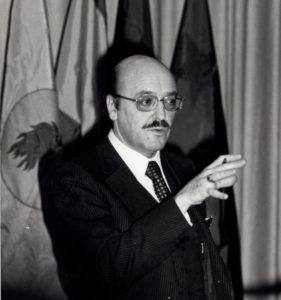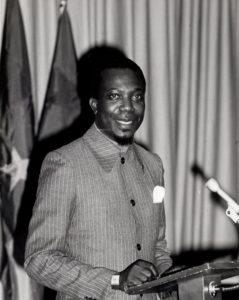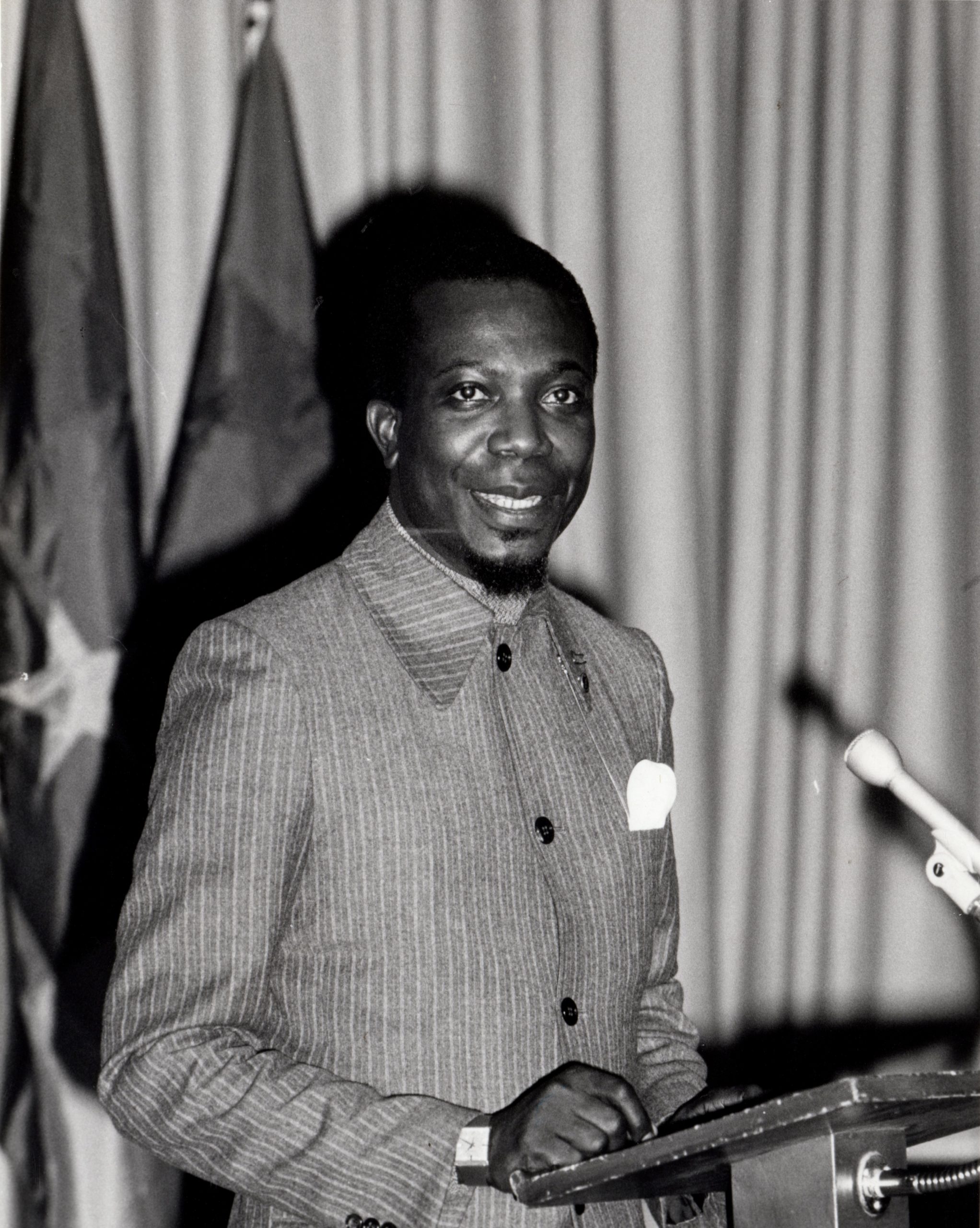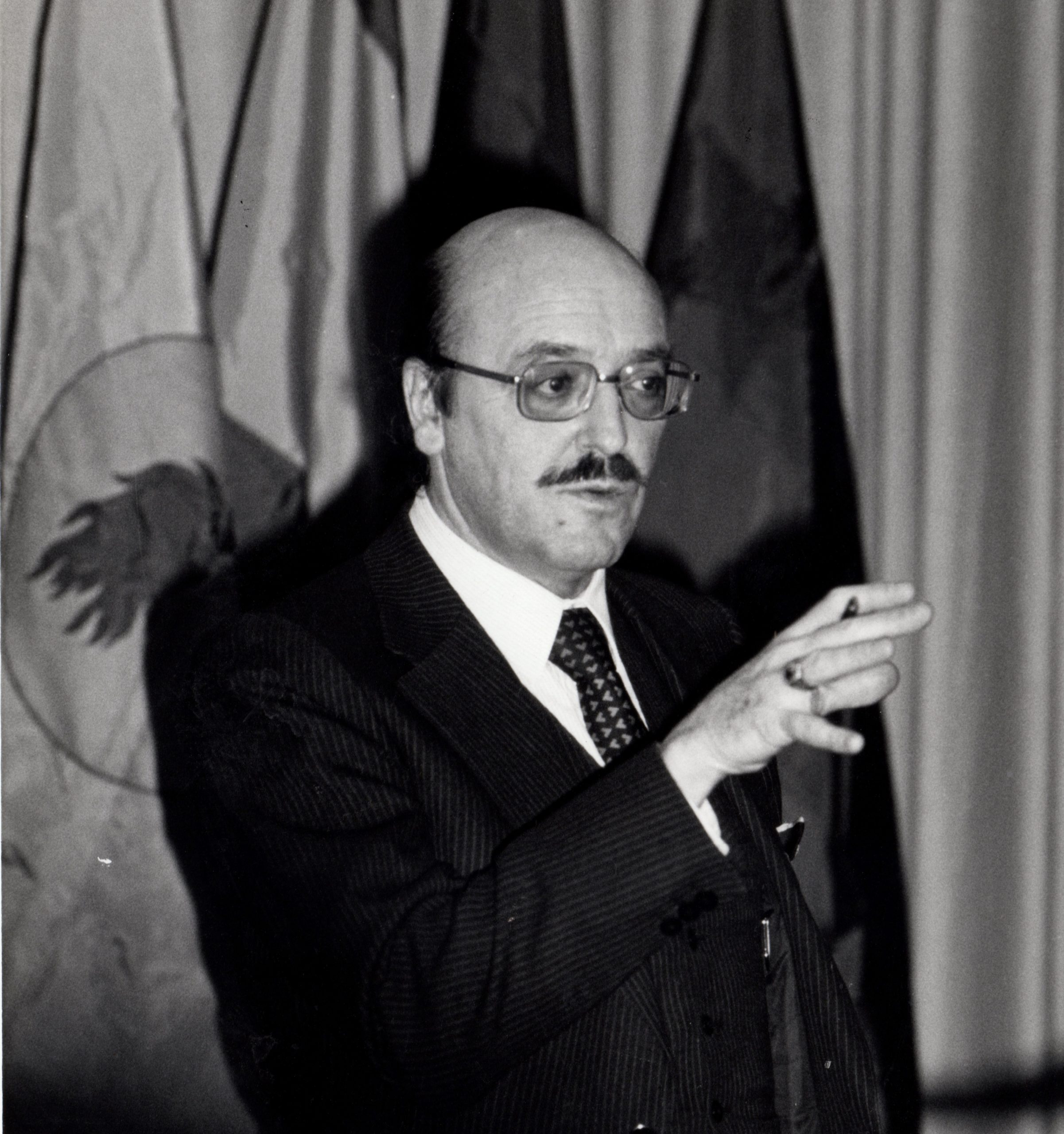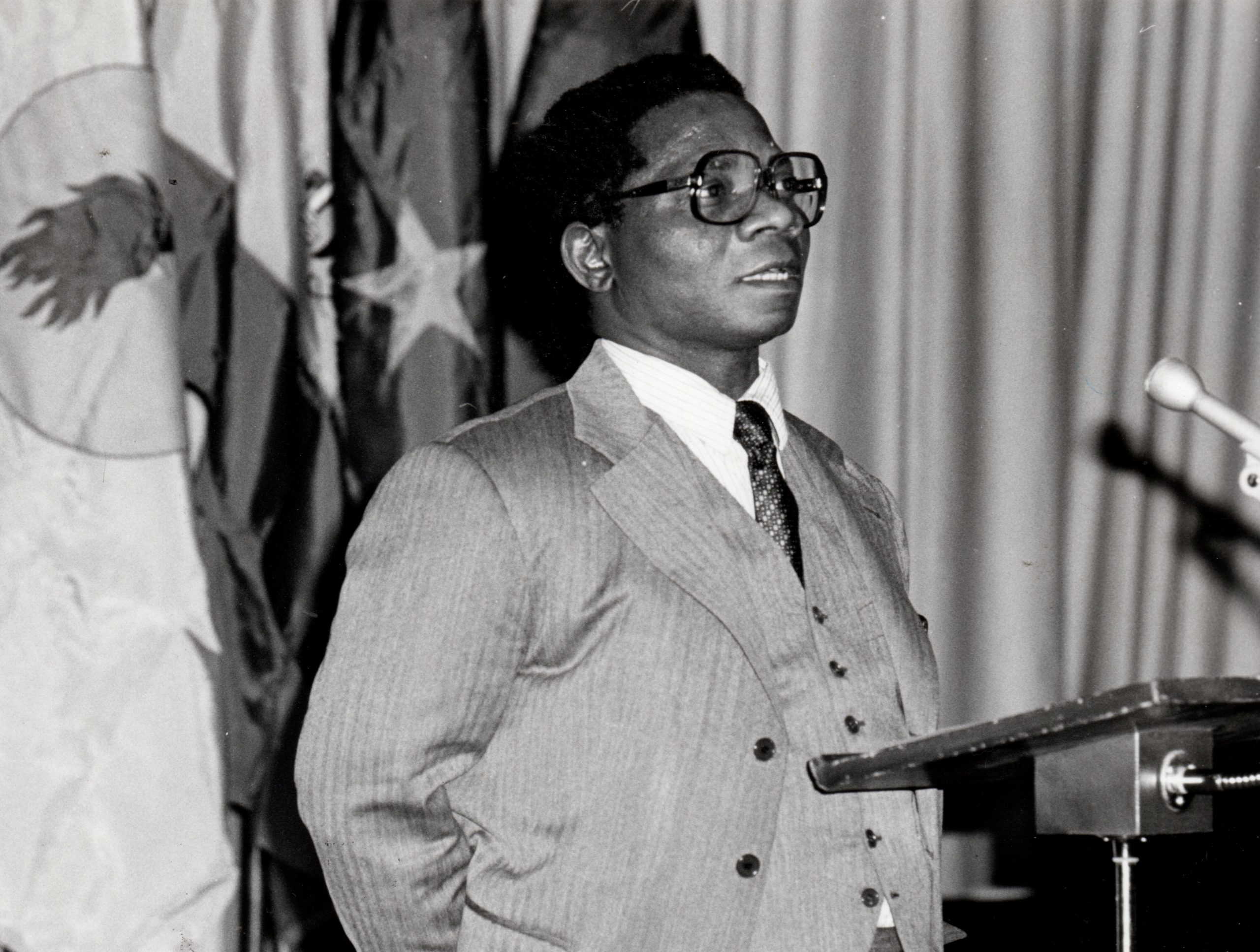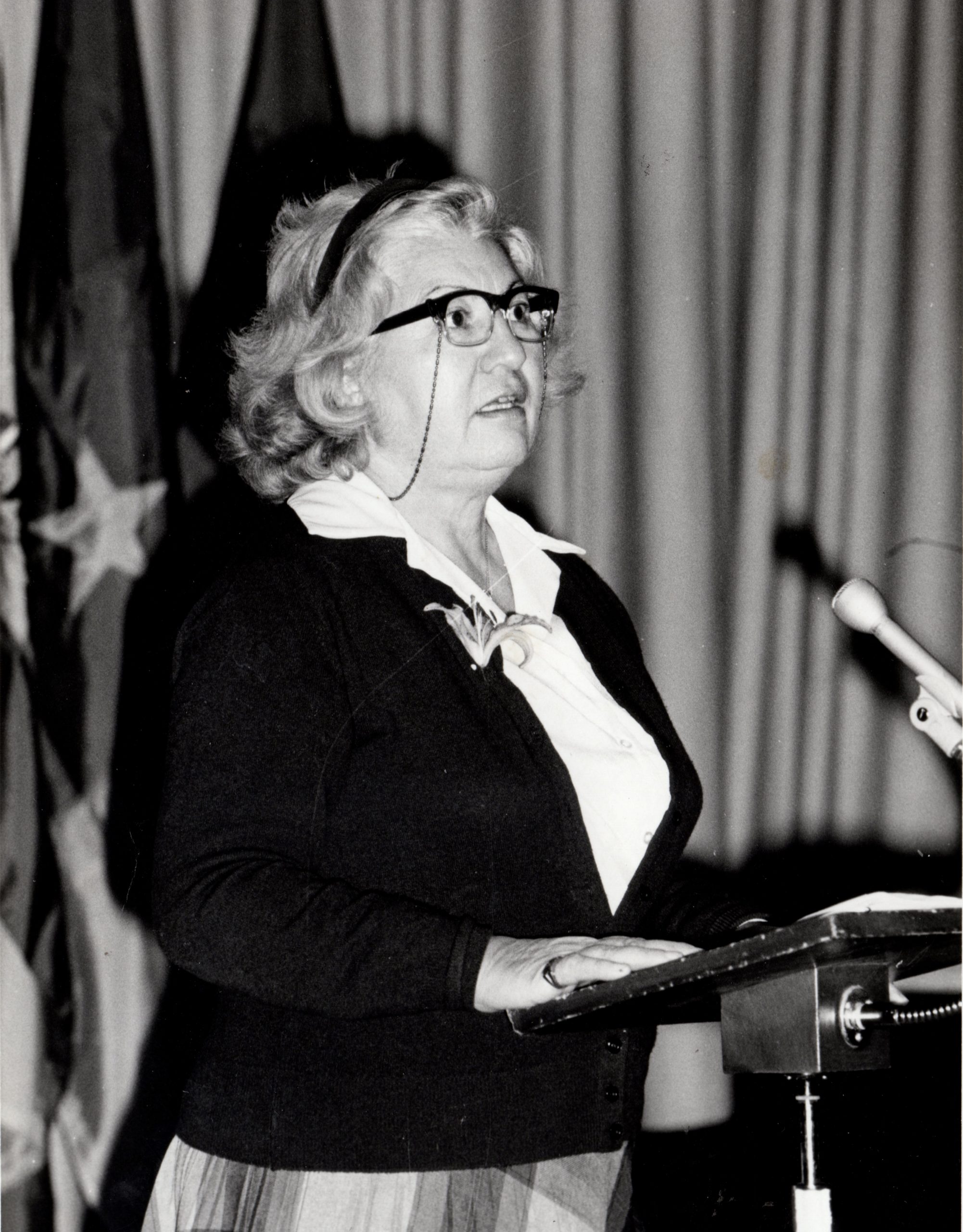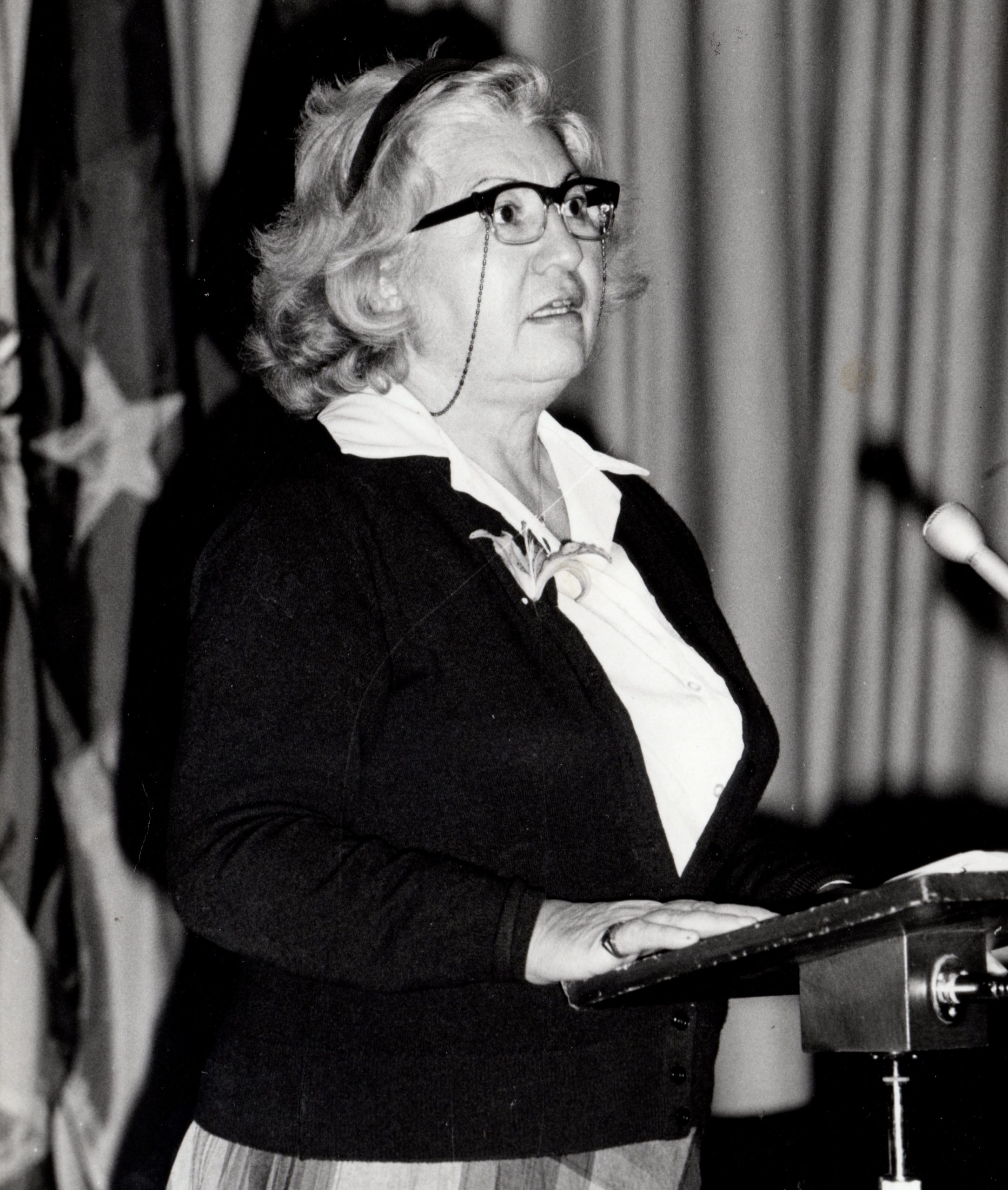This year’s International Thanksgiving Day cel-bration on 17 November 1980 featured guest speakers mbassador Clark of igeria, Ambass-dor Kamanda of Zaire and Ambassador Xifra of Spain, who pointed out t he present increased awareness in the United Nations of the need for good and equitable North-South relations, and the increasing spiritual emphasis. Following are brief excerpts from the programme
Gallery:
- bu-scpmaun-1980-11-27-vol-08-n-11-nov_Page_09
- bu-scpmaun-1980-11-27-vol-08-n-11-nov_Page_10-amb-clark-nigeria.jpg
- bu-scpmaun-1980-11-27-vol-08-n-11-nov_Page_12-amb-xifra-dpr-spain-thanksgiving.jpg
- bu-scpmaun-1980-11-27-vol-08-n-11-nov_Page_14-amb-kamanda-zaire.jpg
Can use the Images in pages above to check the text below taken from pdf ocr version. May need to use spell checker first.
H.E. Mr. B .A . Clark, Permanent Representative of Nigeria to t he United Nations: First of all I would like to express m y gratitude to you all for inviting me to come here this afternoon. I have been particularly impressed that in the bustling life of New York, of which the life of the United Nations is a part, we d o have a group of people who can shut out everything mundane and insignificant to contemplate th e eternal Truths of man and religion. I feel your group has its roots in the teachings of the East , where I had the privilege of serving some twenty years ago, in India to be precise. There, unlike some of the societies we have in the West, the most respected people in the soci-ety are those who h ave given up everything in order to be a ble to contemplate the eternal Truths of peace, justice and fellowship of man with man. I am esp ecially moved to b e here today with a view to marking the twentieth anniversary of the admission of Nigeria to the United Nations. Nations, like men, are constantly at war with themselves. On a personal basis, for example, every morning when I get up-which in itself is not easy -and when I prepare to go to work, I have to convince myself that I am going to work for the good of my country and of course for my own good, because without working I could not support myself and my family . On a larger scale, as a country Nigeria has not b een free from strife over the past twenty years, experiencing what has ch ar-acterised the life of many of the t hird world coun-tries . We even had a civil war for thirty months. We fought among ourselves in order to defend the p rinciples that led us to be m~mbers of the United Nations today. For us membership in the United Nat ions has come to mean our independence, t h e right to organise our own social, economic and political life, and the right to defend the territorial integrity of our country. We h ave taken the liberty-and I think it is our duty – to work to establish these principles and conditions through-out the world, especially in Africa. I’m talking about decolonisation, the fight against r acism and apartheid in South Africa and the concept of the New Economic Order, which in fact is economic decolonisation, in order to ensure that in the post-colonial era, Nigeria’s relations with the rest of the world will be characterised by equality, justice and fair play. I want to conclude my brief remarks by thanking you again fo r inviting me and by challenging you to persist in what you are doing, because here, in my experience of the United Nations, is one of the few oases of peace in this b u ilding, and I presume in the city. I think the ideals you try to propagate here can be used to promote the principles and ideals of the United Nations in a manner which no country- however powerful-can. Than k you very much.
3
H.E . Sr. Don Jose Luis Xifra, Deputy Permanent Representative of Spain to the United Nations : I am very happy to be here with you on the fifth ann iversary of the celebration of International T h anksgiving. It is very difficult for m e to speak af ter such eloquence by my colleague. Ambassador Clark of Nige ria . but I have b een asked to tell you about what twenty-five ye a rs of m embership in the Un ited Nations has meant to my country. I think I co u ld d o th a t best if I just briefly relay some of my p ersonal exper iences in t h e diplomatic world and in this organisation. As a student studying languages abroad . I was aware of the e xistence of the European world. com p osed m ainly of France . England. Germany and Italy . plus I was ver y keenly aware of the existence of the Latin American world. since for us in Sp a in. Latin Americ,a is a real part of our con-cep tion of the world. I was only dimly aware~as silly a s t h a t may see m – of the existence of the North African world, I say “silly” because 18 kilo meters is the distance between Spain and Morocco. This attitude simply reflects the most common position of the Western European student in the fifties of this century. When I launched into my diplomatic career, my first post was in Pakistan, and after Pakistan I went to Morocco. These years opened new horizons for me. In 1968 I went to Geneva to work at the U. N., and then I went on to Paris, London and finally New York, to work at the United Nations again. Here I found a different United Nations than in Geneva, not only because New York is more politi-cal while Geneva is more technical, but also be-cause eleven years had passed. When I came here in 1977, I remember talking with many colleagues about how astonished I was at how much more third-world-oriented the U.N. had become. And this would be, in my opinion, the most important thing that we as Spaniards can derive from our belonging to the United Nat ions. It has meant for us the possibility of understanding first-hand that apart from our small and, to us, powerful world of Western Europe and o u r own closely related Latin American world, there are other worlds. Many of these countries-thanks first, of course, to their own efforts, but with the help of the U nited Nations-have become politically independent in the last 20 years. Some of them are now trying to· become economically independent, which th ey should, and to which end this organisation should direct all its might and power. Reflecting on these 25 years as a whole, I think that we have much to be grateful for. Of course we are aware of the mistakes of the United Nations, but we ourselves must accept responsibility for them. Clearly, in this building, within the limits of the Charter, we have both the power for doing and for just appearing as if we wer e d o in g . But if there is an y justification of our being here, if-as the Ambassador of Nigeria sa id – we want to face the day with a modicu m of clear conscience , then it should be clear t h a t this organisation gives us the power to act, to work for equ a l p olitical and eco-nomic op portunities fo r all th e coun tries of the world. You will tell me, a n d I have heard, that t his is on ly a dream. But som et imes we have to start dreaming . O t h erwise, th e on ly thing we sh all b e doing is sleeping and if we h ad only wanted to sleep, we wo uld n o t have crea t ed the U n ited Nations.
H.E. M . Kamanda wa Kamanda, Permanent Representative oJ the Republic oJ Zaire to the United Nations (translated from the original French by Ms. Yvette Rzpplinger of UNITAR) :
On behalf of the R epublic of Zaire, as well as on my own personal beh alf, I am most happy to join with friends in this programme to celebrate Inter-national Thanksgiving Day, under the sponsorship of Sri Chinmoy Meditation at the United Nations. From the farthest origins of man, from North to South and from East to West, and whatever the colour of his “skin tunic,” man has questioned him-self on his anthropogenesis, on problems born of his own life , on his raison d ‘etre and the very meaning of life, its end and its future, on the state of co-existence with nature in its immensity-which can be at times hospitable and at times most hostile -and, finally, on the mysterious beyond. To these diverse questions, regardless of his geographical location, man has found answers which, at a given time in his evolution, were able to satisfy his level of understanding and the demands of his inquiring mind . . . . Out of this specific vision of the world is born the culture of a people, namely, the sum of the spiri-tual and material values which a people create and shape in the course of its evolution in time and space. This brings us to the realisation that each people has found its own answers to the problems of existence, has established a specific system representing or expressing its vision of the world, has possessed its own culture and civilisation and created its own social values. The African black man has not escaped this movement of humanity. This is why, as a manifestation of the human spirit in its essence, one culture is well worth another, since none is hierarchically superior to another. Who would establish or would have the power to establish such a hierarchical order, beyond any agreed upon authority? … The United Nations organisation constitutes the ideal place for a cosmo-culture and a cosmo-civili-sation to promote solidarity and fraternity to be integrated in the service of all men .
The accession of the Republic of Zaire to inde-pendence and, especiall y, the problems which the nation has known immediately foll owing that in-dependence – p roblems which influence both its national and political life and the life of the United Nations-represent a unique page in the history of the United Nations at the very beginning of the second half of t he twentieth century. VVe want to reiterate the expression of our gratitude to the international community and to all th ose who gave us their suppor t in t h e spirit of peace of the United Nations, and whose actions and purpose were faith-ful to the principles, goals and objectives of the United Nations Charter. The free choice of our membership to the United Nations on 20 Septem-ber 1960 was not an indication of our wanting to be fashionable, but a sign of our profound faith in the peace mission and progress of the United Nations. In these times of ours filled with uncertainty, dis-trust, violence, instabili ty and tension, and open to the manifestat ion of all kinds of egoistic designs, where we rush so as not to be late without knowing quite where we ar e going, where we are confronted with many irrational requ ests-times which seem to take us awa y from the basic need s of humanity-it is heartening and comforting to know that such association s as the Sri Chinmoy Meditation at the United Nations exist, to give u s a moment of re-flection to think about the in timate meaning of life, to give a transcendental thought about things and to rediscover together the infinite greatness of humility as well as the sense of being as students before what is beyond our understanding, before the great architecture of the u niverse, in our continuous search for perfection. We believe that, indeed, in the course of his lifr·, man, through his achievements, achieves himself; through h is realisations, realises himself, within the framework of the continuous creative process of a world which supports or underlies the extraordinary power of improvement, which I shall call the “innate quality of perfectibility.”
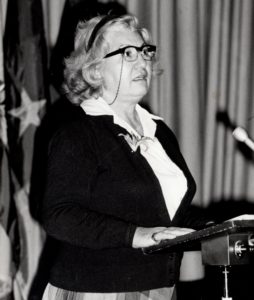
980-11nov-17-international-Thanksgiving-Zaire-translated-from-French-by-Ms-Yvette-Rzpplinger-UNITAR-crp-scaled.jpg
STATEMENT BY M R. PETER STEWART, P RESIDENT THE CENTER FOR WORLD THANKSGIVING
Greetings to the International Day of Thanks-giving at the United Nations, which rightly and justly expresses our deep gratitude for the gift of all life. It is perhaps the highest achievement of human consciousness that we recognize that we as human beings are given life each moment and that we can rejoice with all the h man race in that simple fact. The healings and unity of all the peoples of the earth can draw strength and praiIse for the divine gift of life. The tradition started in 1975 of the Inter-national Day of Thanksgiving at the United Nations is a powerful message of hope to the entire world.
photo Gallery:
- 1980-11nov-17-international-Thanksgiving-Kamanda-wa-Kamanda-Perm-Rep-Zaire-scaled.jpg
- 1980-11nov-17-international-Thanksgiving-Don-Jose-Luis-Xifra-DP-Rep-Spain
- 980-11nov-17-international-Thanksgiving-BA-Clark-Perm-Rep-Nigeria-scaled.jpg
- 1980-11nov-17-international-Thanksgiving-Zaire-translated-from-French-by-Ms-Yvette-Rzpplinger-UNITAR-scaled.jpg
- 980-11nov-17-international-Thanksgiving-Zaire-translated-from-French-by-Ms-Yvette-Rzpplinger-UNITAR-crp-scaled.jpg
